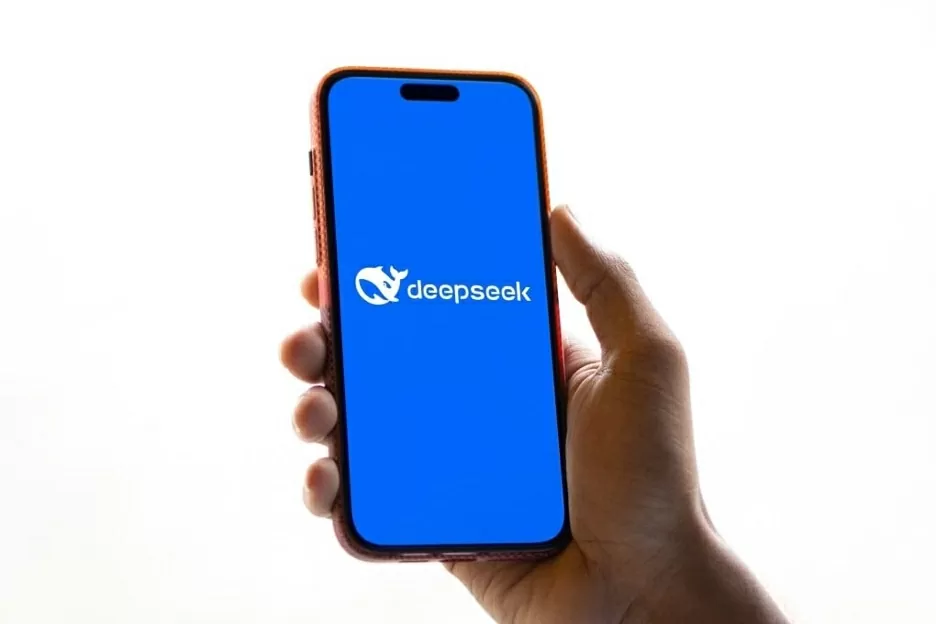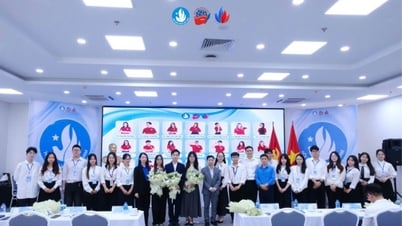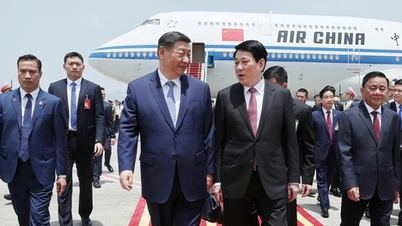Just as Google DeepMind's victory over China's strongest Go player in 2017 demonstrated Western intelligence in the field of artificial intelligence (AI), the recent launch of DeepSeek - a superior AI reasoning model - has been hailed as a resounding success for China.
 |
| DeepSeek founder Liang Wenfeng answers questions from industry experts at a conference in Beijing last week after DeepSeek released its AI reasoning model. (Source: CCTV) |
Counterweight to American AI
DeepSeek’s smarter and cheaper AI model is a “ scientific and technological achievement that shapes the destiny of the nation,” said one Chinese tech executive. The startup has become a key player in “China’s big model technology squad” to counter U.S. AI dominance, said another.
The joy of Chinese tech companies is causing pain for some big US companies as investors question whether DeepSeek’s breakthrough undermines their case for paying huge costs for AI infrastructure, according to the Financial Times . US tech and energy stocks lost $1 trillion in market value on January 27, although they regained some of their gains over the weekend.
To outsiders, the stereotypical image of China remains that of a capital-intensive, state-subsidized manufacturing economy adept at churning out impressively low-cost hardware like smartphones, solar panels and electric vehicles. In reality, however, China has long emerged as a global software superpower, outpacing the West in e-commerce and digital financial services, and investing heavily in AI.
Shaking stereotypes
DeepSeek’s emergence has shaken up many old stereotypes about Chinese innovation, even though the company does not look like a typical Chinese company. This refutes the now-outdated view that “America innovates, China copies, and Europe operates.” In many ways, DeepSeek resembles a Silicon Valley-style startup. Founded in 2023, the company has the same grand ambitions as OpenAI and Google DeepMind in developing human-level AI, or artificial general intelligence (AGI). Its founder, Liang Wenfeng, also heads one of China’s top hedge funds, which has helped DeepSeek avoid the need to raise outside capital.
In an interview republished on China Talk , Liang explained that DeepSeek operates more like a research lab than a commercial enterprise. When hiring, the company prioritizes competence over qualifications, hiring young researchers trained in China. These people, he said, are given room to explore and the freedom to make mistakes. “Creativity often comes naturally—it’s not something that can be consciously planned or taught,” he said.
DeepSeek relies on open-source AI models, like Meta’s Llama, rather than the proprietary models favored by OpenAI and Google. The company is also focusing on language in its journey to AGI, rather than pursuing a multimodal approach that combines images, audio, and video. “What you think of as ‘thinking’ may actually be the brain weaving language. This suggests that human-like AGI could emerge from language models,” he said.
 |
| According to Nvidia research scientist Jim Fan, the Hangzhou-based startup's DeepSeek application is the "biggest dark horse" in the field of open-source large-scale language modeling by 2025. (Source: SCMP) |
Who benefits more?
This focused approach allowed DeepSeek to develop an effective reasoning model without requiring overwhelming computing power, and at a fraction of the cost of its American competitors. Like many other Chinese applications, DeepSeek quickly became the focus of security and privacy concerns from American politicians. OpenAI even accused the company of possibly violating intellectual property rights. However, given that OpenAI is facing lawsuits related to copyright infringement by others, this accusation may strike many as laughable.
While some major US tech companies have responded to DeepSeek with muted warnings, many developers have been quick to seize on the opportunities it presents. DeepSeek’s potential and low cost have led to its application in a growing number of areas. On January 27, DeepSeek became the most downloaded free app on the Apple App Store in the US.
Ironically, DeepSeek has benefited the US more than China. The number of startups founded in China has fallen sharply since 2018. Venture capital investment in China fell 37% to $40.2 billion last year, while it surged in the US, according to PitchBook.
It can be said that DeepSeek has dealt a heavy blow to the complacency of American technology corporations, promoting global competition and accelerating the application of AI. In the short term, could this be a new concept: "China innovates, and America follows"? In addition, whether this is just a temporary phenomenon or the beginning of a long-term trend still needs more time to answer.
Source: https://baoquocte.vn/voi-deepseek-trung-quoc-dinh-hinh-van-menh-quoc-gia-pha-vo-dinh-kien-cu-gay-dau-don-cho-ky-phung-dich-thu-302691.html

























![[Photo] Nearly 104,000 candidates in Hanoi complete procedures to take the 10th grade entrance exam](https://vphoto.vietnam.vn/thumb/1200x675/vietnam/resource/IMAGE/2025/6/7/7dbf58fd77224eb583ea5c819ebf5a4e)































































![[OCOP REVIEW] Tu Duyen Syrup - The essence of herbs from the mountains and forests of Nhu Thanh](https://vphoto.vietnam.vn/thumb/402x226/vietnam/resource/IMAGE/2025/6/5/58ca32fce4ec44039e444fbfae7e75ec)







Comment (0)